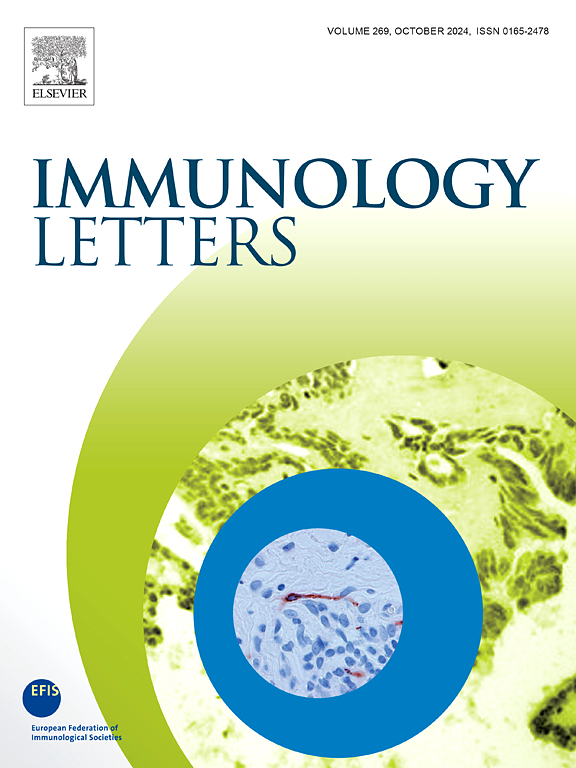Effects of microplastics on the immune system: How much should we worry?
IF 2.8
4区 医学
Q3 IMMUNOLOGY
引用次数: 0
Abstract
Plastics are everywhere. It is widely recognized that they represent a global problem, the extent of which is yet to be defined. Humans are broadly exposed to plastics, whose effects and consequences are poorly characterized so far. The main route of exposure is via alimentary and respiratory intake. Plastics pollutions may come from both: water and food contamination itself, and their packaging. The smaller sizes (i.e. microplastics <150 µm - MPs) are considered to be the most pervasive of living organisms and, therefore, potentially the most harmful. As humans occupy one of the apex positions of the food chain, we are exposed to bioaccumulation and biomagnification effects of MPs. In fact, MPs are commonly found in human stools and blood. However, there are no data available yet on their ability to accumulate and to produce detrimental consequences on biological systems. Even though the effects of plastics pollution are poorly studied in mammals, including humans, they appear to have inflammatory effects, which is rather concerning as many etiologies of disease are based on a pro-inflammatory status.

微塑料对免疫系统的影响:我们应该担心多少?
塑料无处不在。人们普遍认识到,它们是一个全球性问题,其程度尚待确定。人类广泛接触塑料,但迄今为止,人们对塑料的影响和后果知之甚少。主要的接触途径是通过食物和呼吸吸入。塑料污染可能来自两方面:水和食品污染本身,以及它们的包装。较小的尺寸(即微塑料)
本文章由计算机程序翻译,如有差异,请以英文原文为准。
求助全文
约1分钟内获得全文
求助全文
来源期刊

Immunology letters
医学-免疫学
CiteScore
7.60
自引率
0.00%
发文量
86
审稿时长
44 days
期刊介绍:
Immunology Letters provides a vehicle for the speedy publication of experimental papers, (mini)Reviews and Letters to the Editor addressing all aspects of molecular and cellular immunology. The essential criteria for publication will be clarity, experimental soundness and novelty. Results contradictory to current accepted thinking or ideas divergent from actual dogmas will be considered for publication provided that they are based on solid experimental findings.
Preference will be given to papers of immediate importance to other investigators, either by their experimental data, new ideas or new methodology. Scientific correspondence to the Editor-in-Chief related to the published papers may also be accepted provided that they are short and scientifically relevant to the papers mentioned, in order to provide a continuing forum for discussion.
 求助内容:
求助内容: 应助结果提醒方式:
应助结果提醒方式:


